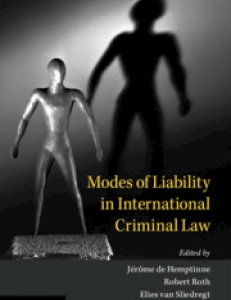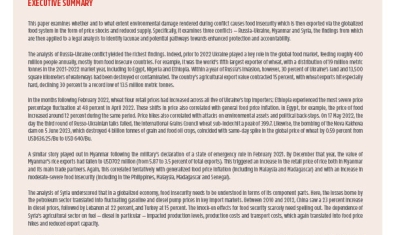The most senior political and military figures in any given context are almost invariably not the people ‘pulling the trigger’. Indeed, today, many of the greatest debates and controversies in international criminal law (ICL) concern forms of responsibility for international crimes other than direct commission.
An Inconsistent Jurisprudence
Jurisprudence in the various ICL tribunals and national courts is inconsistent, both internally and across different tribunals, as illustrated by recent debates surrounding the complex notions of joint criminal enterprise – involving the participation of several individuals in a common criminal plan – or of command responsibility – when a superior is held responsible for international crimes committed by his subordinates and for failing to prevent or punish them. This has left the state of the law unclear, to the detriment of accountability and the ongoing struggle against impunity.
Clarifying the Conditions of Accountability for International Crimes
This project therefore intends to clarify the conditions of accountability for international crimes by providing a detailed assessment of the customary international law status of, in particular, the actus reus and mens rea elements of modes of liability: planning, instigating, conspiracy, direct and indirect perpetration, co-perpetration, the three forms of joint criminal enterprise, the doctrine of common purpose under the Rome Statute of the International Criminal Court (ICC), command responsibility and aiding and abetting.
The research's findings will be published in a book. This will constitute an essential reference for national courts and international tribunals, as well as ministries of justice and foreign affairs, international organizations, fact-finding missions and commissions of inquiry, United Nations human rights treaty bodies and special procedures, judges and academics.
The research is directed by Professor Robert Roth and coordinated by Jérôme de Hemptinne and involves the active participation of several leading experts in the field of ICL as well as young scholars from universities, the ICC and other international tribunals who have acquired extensive experience in this area.











